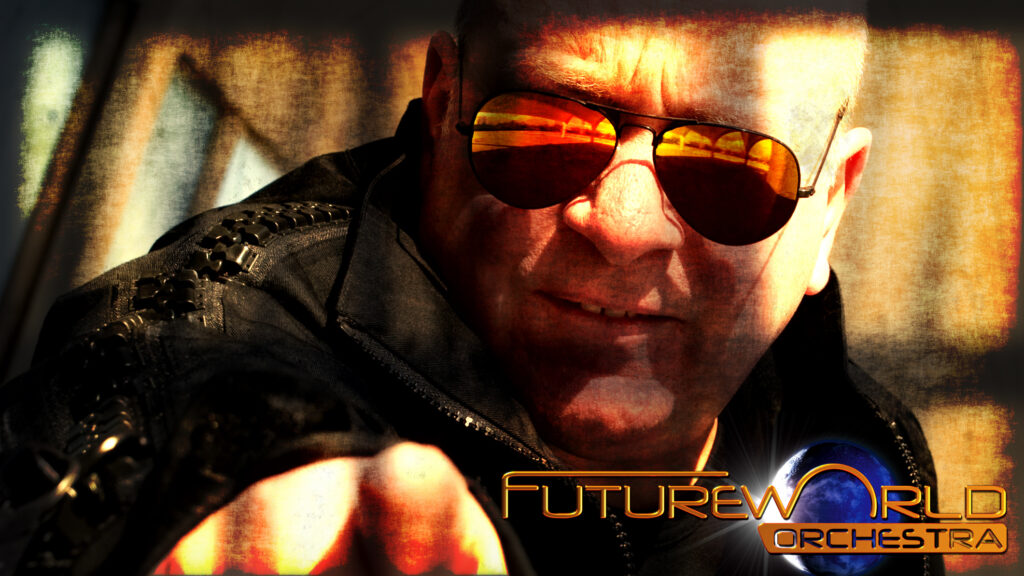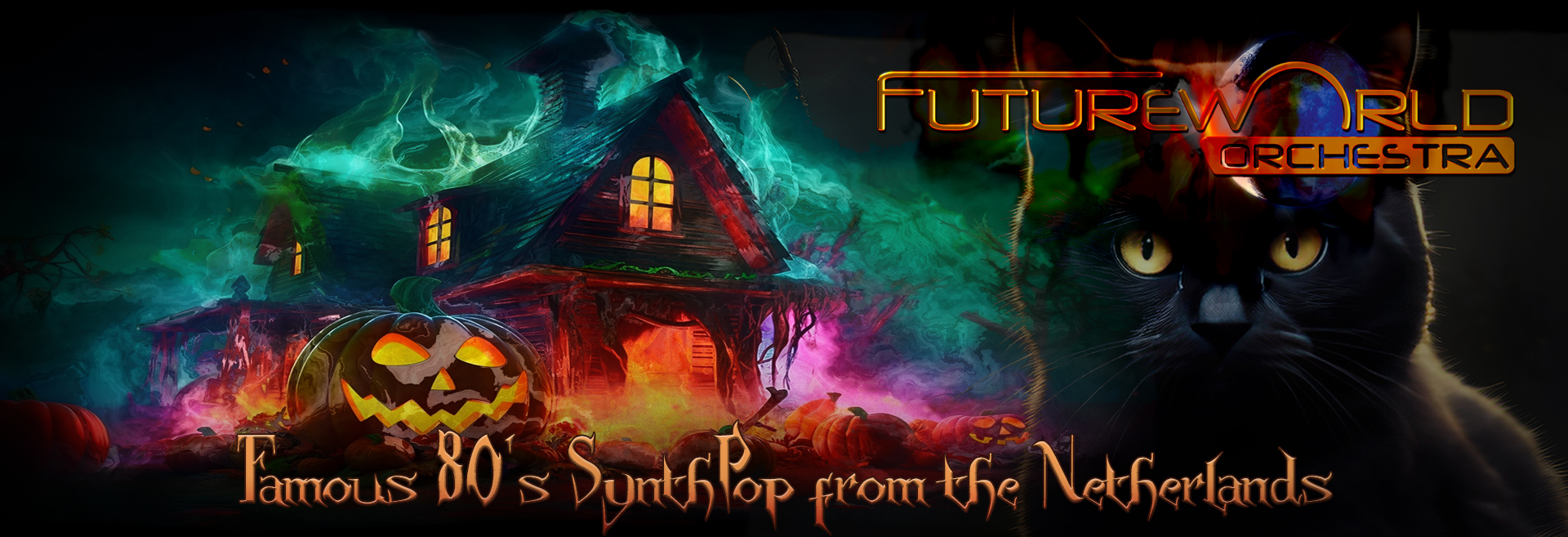Robert Pot: The Maestro Behind the Synths
In the pantheon of 1980s electronic music, few names have stood the test of time like Robert Pot. As the keyboardist, composer, and driving force behind the legendary Dutch synth-pop act Futureworld Orchestra, Robert’s innovative use of synthesizers helped define the electronic landscape of the era. Yet, Robert Pot is more than just a name linked to one of the most influential electronic acts of the 80s—he is a true visionary, a maestro who carved out his own niche in a rapidly evolving music scene, and whose influence is still felt today.
This blog takes a deep dive into the life, career, and artistry of Robert Pot, exploring how he became a master of the synthesizer, his lasting influence on the synth-pop genre, and the creative journey that has kept him relevant decades later.
The Early Days: From Analog Curiosity to Synth Wizardry
Robert Pot’s love affair with music began at an early age. Born with a keen ear for melody and rhythm, it was clear from the start that Robert had an innate talent for music. However, it wasn’t until he discovered the world of synthesizers that his true passion took form. Growing up in an era when electronic music was just beginning to make waves, Robert became fascinated with the idea of creating sounds that had never been heard before.
The late 1970s and early 1980s were a time of rapid technological advancements in music, with synthesizers becoming more accessible to musicians. Robert, always curious and eager to push boundaries, dove headfirst into this new world of sound. Influenced by the likes of Jean-Michel Jarre, Vangelis, and Kraftwerk, Robert saw the potential of synthesizers not just as tools for creating music but as instruments capable of expressing deep emotions and transporting listeners to other worlds.
Armed with this vision, Robert began experimenting with some of the era’s most iconic synthesizer brands, such as Moog, Korg, and Roland These brands allowed him to sculpt intricate soundscapes that were equal parts futuristic and melodic, and they would soon become the foundation of his career as a pioneering keyboard player.
The Birth of Futureworld Orchestra: Robert’s Masterpiece
In 1980, Robert Pot took his synth experiments to the next level by forming Futureworld Orchestra, a project that would blend his passion for melody and technology into something truly groundbreaking. Alongside Gerto Heupink for a brief period, Robert set out to create music that was innovative, cinematic, and emotional—far from the cold, mechanical sounds often associated with early electronic music.
Futureworld Orchestra became Robert’s canvas for exploring the full potential of synthesizers. He was determined to create music that could stand alongside the greats of the time, and he succeeded. Their debut single, “Desire”, released in 1981, became an instant hit, showcasing Robert’s skill in crafting lush, melodic synth lines that were both catchy and emotionally resonant. The success of “Desire” catapulted Futureworld Orchestra into the spotlight, and Robert was firmly established as a leading figure in the synth-pop movement.
The Signature Sound: Emotion Through Synthesis
What set Robert Pot apart from other keyboard players of his time was his ability to inject emotion into his electronic compositions. While many electronic acts of the 80s focused on cold, robotic sounds, Robert’s approach was different. His music, while undeniably electronic, had warmth, depth, and a cinematic quality that resonated with listeners.
A hallmark of Robert’s style is his use of layered synths, where multiple synthesizer lines weave together to create rich, atmospheric soundscapes. This approach is most evident in tracks like “Theme from E.T.” and “Roulette”, where sweeping synths and intricate melodies transport the listener to an almost otherworldly place. For Robert, synthesizers weren’t just machines—they were storytellers. Every note, every melody, was crafted to evoke a sense of wonder and imagination, a theme that is central to the Futureworld Orchestra project.
Robert also had an impeccable sense of harmony and rhythm. His compositions were often built around strong, driving basslines that gave his music an undeniable energy, while his chord progressions and melodies brought a sense of grandeur and scale. Whether creating upbeat tracks like “Captain Coke” or more introspective pieces like “Airborne,” Robert’s music always struck a perfect balance between complexity and accessibility.
Synthesizers as Extensions of the Soul
For Robert Pot, synthesizers were more than just musical instruments—they were extensions of his creative soul. He often described the process of composing with synthesizers as akin to “painting with sound.” This creative philosophy allowed him to approach music-making with a sense of freedom and exploration that was rare in the 80s synth-pop world, where formulas often dictated the direction of songs.
One of Robert’s favorite instruments was the Polymoog, a powerful analog synthesizer that became a staple of the Futureworld Orchestra sound. Known for its wide range of tonal possibilities, the Polymoog allowed Robert to create everything from soaring leads to deep, resonant basses. In his hands, it became a tool for not just making music but expressing complex emotions—something that few electronic artists of the time could achieve. In the composition ‘Desire’, Polymoog provided a very high degree of recognition and was ‘key’ to its success.
The Legacy of Robert Pot: Beyond Futureworld Orchestra
After the release of Futureworld Orchestra’s two seminal albums, Mission Completed (1982) and Turning Point (1983), Robert’s legacy as a synth pioneer was secured. These albums remain cult classics among fans of 80s synth-pop and electronic music, with their remastered versions continuing to find new audiences even decades later.
But Robert Pot’s influence didn’t stop with Futureworld Orchestra. His work laid the groundwork for many of the synthwave and retro-inspired electronic genres that would emerge in the 2000s and beyond. Artists in these genres often cite Robert’s lush, cinematic soundscapes as key influences in their own music, with some even directly sampling or remixing Futureworld Orchestra tracks.
Robert’s commitment to innovation never wavered. Even in recent years, he has continued to explore new sounds and technologies, releasing remastered editions of Futureworld Orchestra’s albums and experimenting with modern production techniques to breathe new life into his timeless compositions. His enduring passion for music and synthesis has ensured that his work remains as relevant today as it was when it first debuted.
A Legacy That Endures
Robert Pot’s journey as a keyboard player, composer, and visionary has left an indelible mark on the world of electronic music. As the creative force behind Futureworld Orchestra, Robert not only shaped the sound of an era but also laid the groundwork for future generations of electronic musicians. His ability to balance technical innovation with emotional depth makes him one of the most influential synth players of his time.
Today, Robert’s music remains timeless. Whether through his classic 80s hits or his remastered releases, Robert Pot continues to captivate listeners with his ability to create rich, immersive soundscapes that transport us to new worlds. For fans of synth-pop, electronic music, and beyond, Robert Pot will always be remembered as a true maestro of the synthesizer, an artist who saw the future and brought it to life through sound.
If you’re a fan of 80s music, synthesizers, or simply great storytelling through sound, Robert Pot is an artist whose work you need to explore. His contributions to the world of electronic music are vast and enduring, making him a true legend in the field. Turn up the volume, close your eyes, and let Robert Pot’s masterful synthesizer work take you on a journey into the future of sound.
October 2024
Mission Completed & Turning Point – Vinyl

